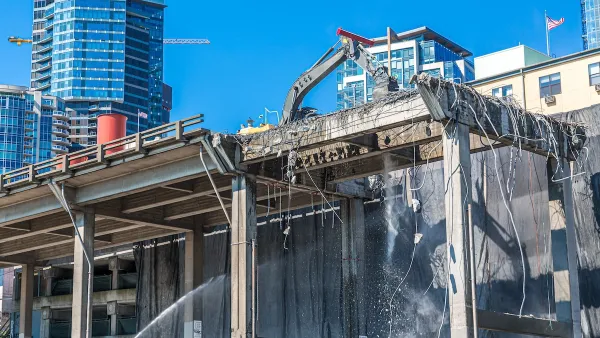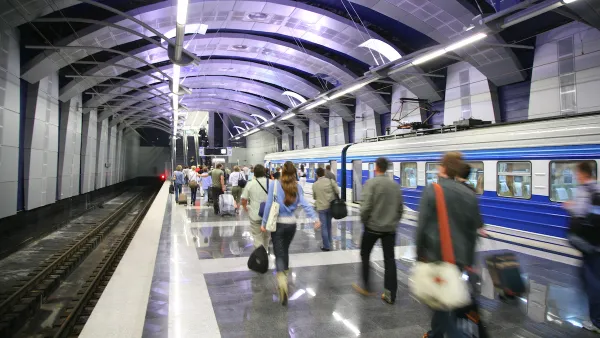The Infrastructurist offers four case studies of cities that have removed highways. The result: less congestion.
"Of course, improving congestion is not the main reason why a city would want to knock down a poorly planned highway–the reasons for that are plentiful, and might include improving citizen health, restoring the local environment, and energizing the regional economy. More efficient traffic flow is just a wonderful side benefit.
Sound dubious? Here are several examples of how three cities (and their drivers) have fared better after highways that should never have been built in the first place were taken down."
In each of these cases, the removed highways have been replaced with new public spaces and parks.
FULL STORY: Huh?! 4 Cases Of How Tearing Down A Highway Can Relieve Traffic Jams (And Save Your City)

Analysis: Cybertruck Fatality Rate Far Exceeds That of Ford Pinto
The Tesla Cybertruck was recalled seven times last year.

National Parks Layoffs Will Cause Communities to Lose Billions
Thousands of essential park workers were laid off this week, just before the busy spring break season.

Retro-silient?: America’s First “Eco-burb,” The Woodlands Turns 50
A master-planned community north of Houston offers lessons on green infrastructure and resilient design, but falls short of its founder’s lofty affordability and walkability goals.

Test News Post 1
This is a summary

Analysis: Cybertruck Fatality Rate Far Exceeds That of Ford Pinto
The Tesla Cybertruck was recalled seven times last year.

Test News Headline 46
Test for the image on the front page.
Urban Design for Planners 1: Software Tools
This six-course series explores essential urban design concepts using open source software and equips planners with the tools they need to participate fully in the urban design process.
Planning for Universal Design
Learn the tools for implementing Universal Design in planning regulations.
EMC Planning Group, Inc.
Planetizen
Planetizen
Mpact (formerly Rail~Volution)
Great Falls Development Authority, Inc.
HUDs Office of Policy Development and Research
NYU Wagner Graduate School of Public Service



























